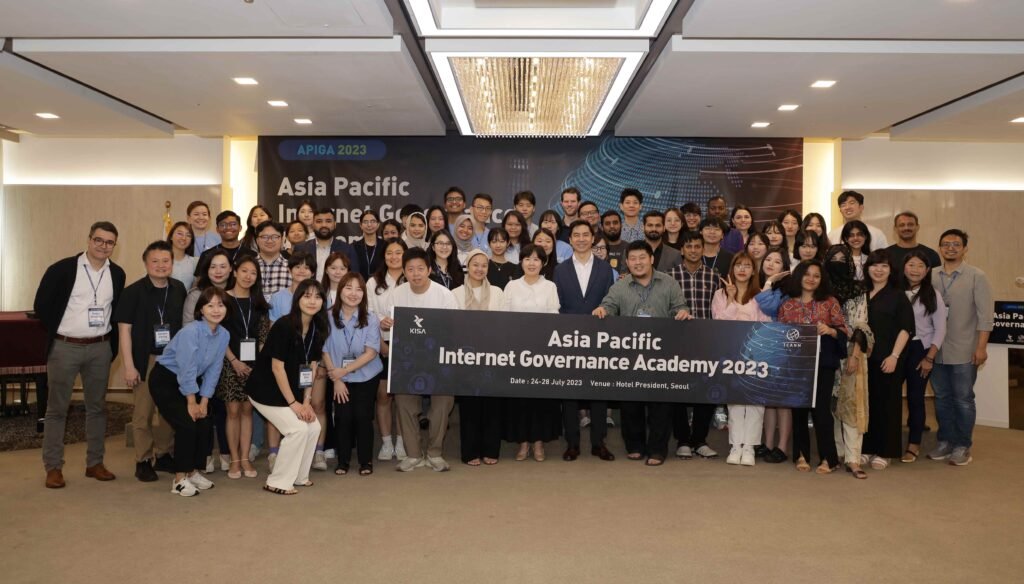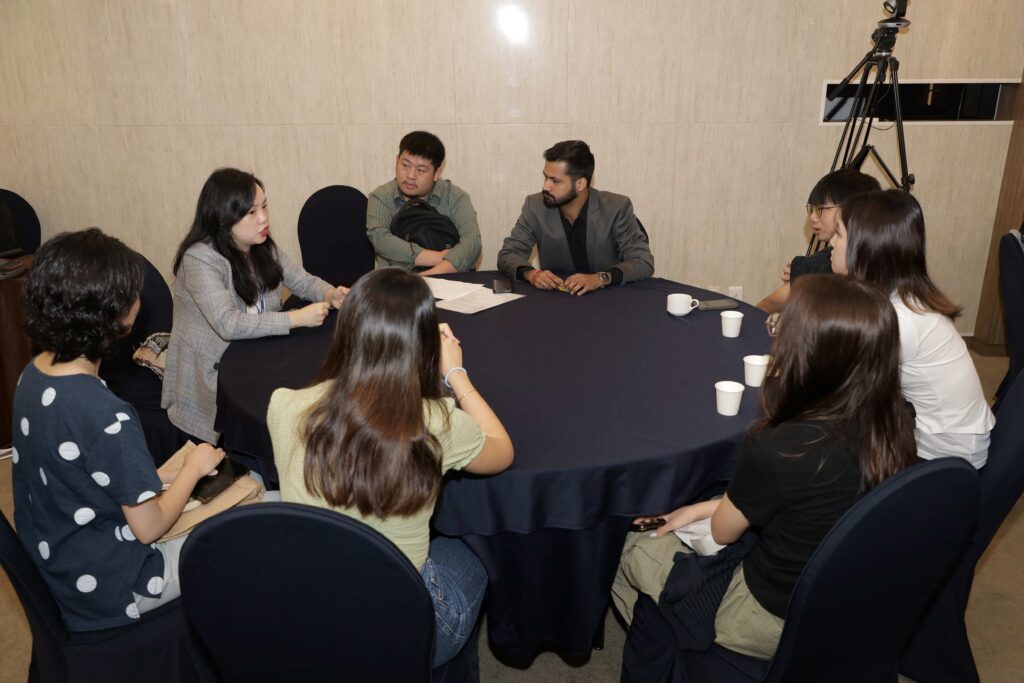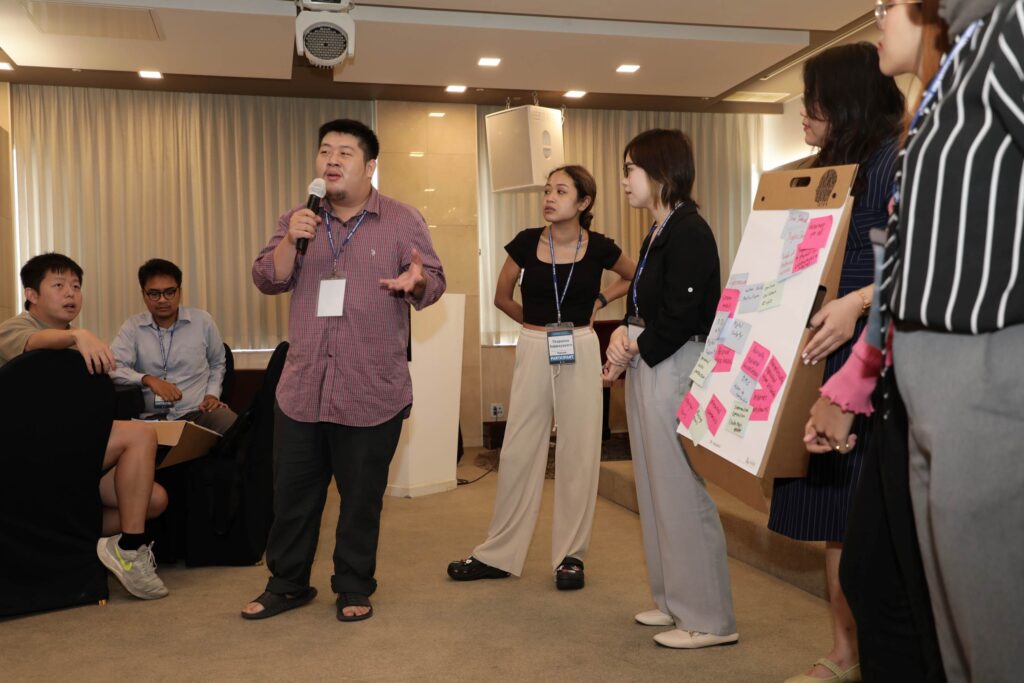ODC’s insight from The Asia Pacific Internet Governance Academy 2023
The Asia Pacific Internet Governance Academy (APIGA 2023) was scheduled for five days from 24-28 July 2023 at Hotel President, Seoul, South Korea. The APIGA originally started in 2016 with an aim to equip participants with the knowledge and skills to participate in Internet policy-making by developing a strong foundation in the following:
- The concept of Internet governance, and the multi-stakeholder model of policymaking
- The current global Internet governance issues, which can be applicable at the local and regional levels
- The confidence to speak up in regional and international fora.
APIGA is a capacity-development program that focuses on Internet governance which brings youth from the Asia Pacific region to discuss and propose solutions to the issue that occurs in their home country. This program also allows all participants to experience the multi-stakeholder Internet governance meeting and how the Internet works. APIGA is co-hosted by the Internet Corporation for Assigned Names and Numbers (ICANN) and the Korea Internet & Security Agency (KISA).
Day One (24 August 2023)
The program officially started with an Introduction and icebreakers, Opening Ceremony, Keynotes, Principles of Internet Governance, IP Go and DNS Go, History of Internet Governance & Internet Governance Today (Part 1), Internet Governance Fora (Part 1), Model ICANN Conference (Part 1). On that day, there was a learned insight into the definition of Internet governance, and the most interesting section was called “IP Go and DNS Go” which allowed me to know more about the role of the network operator and the way the Internet works.
Day Two (25 August 2023)
The program focused on the History of Internet Governance & Internet Governance Today (Part 2), Internet Governance Fora (Part 2), Governance of the Internet (Part 1), Breakout with APAC Community Leaders, APIGA City, Safeguarding the Future of the Internet and Model ICANN Conference (Part 2). Back then, all participants formed into groups and raised the issue happening in their country around internet governance. From the presentation of the speaker, there was a lesson learned that the Internet works based on 3 main elements, including Protocol, IP address, and Domain name.
One of many interesting activities was called “Workshop Proposal Submission” in which the Speaker presented to us the format and tips that participants had to learn before submitting their proposal to the Internet Governance Forum. Following this section, the roles of ALAC, GNSO, and GAC were highlighted.
The At-Large Advisory Committee (ALAC) represents the voices of individual Internet users especially about their interests and concerns. It helps to ensure that internet users are able to raise their concerns regarding internet governance as well as domain name issues and to provide their input into ICANN’s policy-making processes. Generic Names Supporting Organization (GNSO) consists of various stakeholder groups including registries, registrars, and commercial and noncommercial interests; it helps to ensure the stability, security, and openness of the Domain Name System.
The Governmental Advisory Committee (GAC) represents governments and Intergovernmental Organizations, and it advises ICANN on public policy issues, particularly when it comes to an intersection whereby ICANN policies interact with national and international laws or regulations. After the lunch break, it jumped into another remarkable section called “APIGA City” which led all the participants to understand digital literacy and digital safety.
Day Three (26 August 2023)
The program began with the section called Governance of the Internet (Part 2) and Domain Name Dispute Resolution Policy which is the current hot issue drawing attention from everyone. After that, the participants also learned more insight about the format of the proposal to be submitted to the Internet Governance Forum as well as some tips that helped participants to successfully pass the proposal submission. The day came to an end through the Model ICANN Conference (Part 3) section, whereby all participants were divided into 3 groups ALAC, GAC, and GNSO, and each group got a chance to talk to their mentor.
Day Four (27 August 2023)
It came the day when each team had to present their proposal to their mentor, and ODC’s staff joined a team that presented a proposal under the Title “Empowering Digital Identity – Safeguarding Women from Harm” This roundtable discussion aim to raise awareness toward digital identity.
After the proposal presentation, came an interesting section on Cybersecurity Incident Role-play in which all participants were divided into 3 main teams including the management team, the technical team, and the legal team which were responsible for responding to the public about a case that a hacker leaked a company’s data. Those activities made the participants know how to respond to such incidents that would happen in our daily lives. Day Four was wrapped up through the Mockup conference in which each team prepared their position papers and questions to be asked toward the Applicant Support Program.
Day Five (28 August 2023)
On the last day of the programs, the Organizer presented the way forward that the APIGA 2023 participants would have to contribute their knowledge to Internet governance through other programs including ICANN, IETF, APNIC, IGF, NRIs, and other Youth initiatives programs. The APIGA 2023 came to an end with the closing remark by the representative from KISA. All participants also got a chance to visit the amusement center, which was an incredible moment that ODC’s staff managed to learn from and build connections with other participants necessary for future cooperation.
After the program ends, it is expected that the ODC team can learn or apply, if possible, any relevant lessons learned from APIGA 2023 to Cambodian youth through an event called “Cambodia Youth Internet Governance Forum (Cambodia YIGF) which will be hosted in Phnom Penh in upcoming September 2023. Relevant activities that are potentially applied to Cambodia YIGF include the multi-stakeholder engagement model, so that the ODC team, if needed, is able to provide training on the role of GAC, ALAC, and GANSO which could broaden an understanding of the importance of the internet and relevant policies that make the internet safe and accessible for everyone.
The insight from APIGA 2023, furthermore, can be an input that the ODC team makes use of for experience-sharing sessions related to internet governance. Second, it is such a great opportunity that ODC ‘s team have built a network and learned from other academic, expert, and other internet governance community that could be a tool to raise awareness about internet governance in Cambodia.




